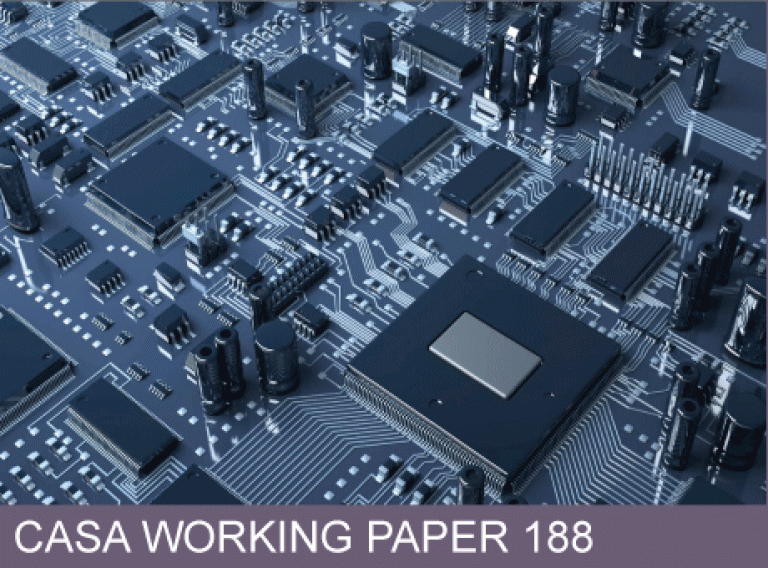CASA Working Paper 188

5 October 2012
Smart Cities of the Future
In this paper we sketch the rudiments of what constitutes a smart city which we define as a city in which ICT is merged with traditional infrastructures, coordinated and integrated using new digital technologies. These technologies establish the functions of the city and also provide ways in which citizen groups, governments, businesses, and various of agencies who have an interest in generating more efficient and equitable systems can interact in augmenting their understanding of the city and also providing essential engagement in the design and planning process.
Our vision defining seven goals which concern: developing a new understanding of urban problems; effective and feasible ways to coordinate urban technologies; models and methods for using urban data across spatial and temporal scales; developing new technologies for communication and dissemination; developing new forms of urban governance and organisation; defining critical problems relating to cities, transport, and energy; and identifying risk, uncertainty, and hazards in the smart city. To this, we add six research challenges: to relate the infrastructure of smart cities to their operational functioning and planning through management, control and optimisation; to explore the notion of the city as a laboratory for innovation; to provide portfolios of urban simulation which inform future designs; to develop technologies that ensure equity, fairness and realise a better quality of city life; to develop technologies that ensure informed participation and create shared knowledge for democratic city governance; and to ensure greater and more effective mobility and access to opportunities for urban populations.
We begin by defining the state of the art, explaining the science of smart cities, introducing questions of representation involved with measuring and mining urban data focusing on ideas about coupling networks, examining the need for joined-up planning, and introducing participation through citizen science and crowd-sourcing. We then outline seven proposed project areas. Finally we anticipate the paradigm shifts that will occur in this research and define a series of key demonstrators with our partners which will focus on specific issues in the smart city such as housing booms and busts, impacts of changes in energy and mobility on urban transport, the fracturing of transport networks, weather and one-off events, efficiencies produced by synthesising different urban data sets, climate change, environmental degradation and pollution, health, well-being and aging, and the involvement of citizens in the development of plans for smart cities of the future.
Authors: Michael Batty (UCL, London), Kay Axhausen (ETH, Zurich), Giannotti Fosca (Universit di Pisa), Alexei Pozdnoukhov (National University of Ireland), Armando Bazzani (Universita di Bologna), Monica Wachowicz (University of New Brunswick), Georgios Ouzounis (JRC) and Yuval Portugali (Tel-Aviv University)
Publication Date: 5th October 2012
RPS ID:
Download Working Paper 188. File size 3.7MB, PDF format.
 Close
Close

